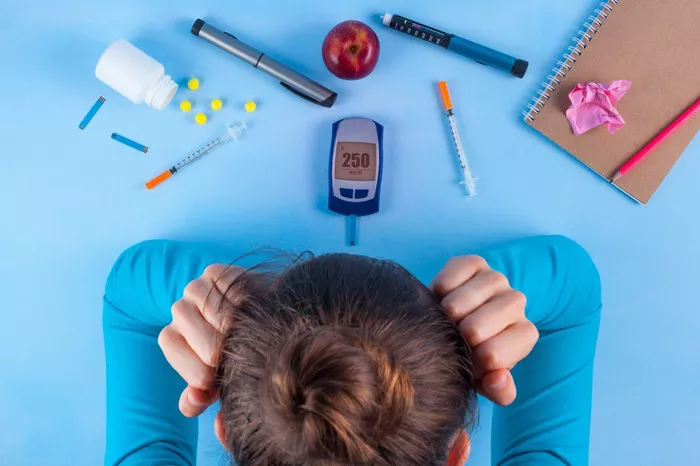Introduction
Hypoglycemia, defined as an abnormally low level of blood glucose, is a well-recognized condition often associated with diabetes mellitus management. However, hypoglycemia can occur in individuals without diabetes, particularly under stress. Stress-induced hypoglycemia represents a unique clinical phenomenon where psychological or physical stress precipitates a drop in blood glucose levels. This article delves into the mechanisms, risk factors, clinical manifestations, diagnostic approaches, and management strategies for stress-induced hypoglycemia, providing a comprehensive resource for healthcare professionals.
Mechanisms of Stress-Induced Hypoglycemia
Stress-induced hypoglycemia arises from the intricate interplay between the endocrine and nervous systems. When the body encounters stress, it initiates a ‘fight or flight’ response, predominantly mediated by the hypothalamus-pituitary-adrenal (HPA) axis and the autonomic nervous system.
- HPA Axis Activation: The hypothalamus releases corticotropin-releasing hormone (CRH), stimulating the pituitary gland to secrete adrenocorticotropic hormone (ACTH). ACTH prompts the adrenal cortex to produce cortisol, a key glucocorticoid that typically raises blood glucose levels by promoting gluconeogenesis and reducing peripheral glucose uptake. However, chronic stress can lead to dysregulation of cortisol secretion, potentially resulting in paradoxical hypoglycemia.
- Sympathetic Nervous System (SNS) Involvement: Stress also triggers the SNS, leading to the release of catecholamines (epinephrine and norepinephrine) from the adrenal medulla. While catecholamines usually increase blood glucose by stimulating glycogenolysis and gluconeogenesis, excessive or prolonged SNS activation can exhaust glycogen stores and deplete substrates necessary for gluconeogenesis, precipitating hypoglycemia.
- Insulin and Counter-Regulatory Hormones: Insulin, the primary hormone responsible for lowering blood glucose, may also play a role in stress-induced hypoglycemia. Stress can influence insulin secretion and sensitivity. Additionally, counter-regulatory hormones such as glucagon and growth hormone, which act to raise blood glucose, might be impaired or overwhelmed during intense stress, leading to hypoglycemia.
Risk Factors for Stress-Induced Hypoglycemia
Several factors predispose individuals to stress-induced hypoglycemia:
- Pre-existing Medical Conditions: Individuals with adrenal insufficiency, pituitary disorders, or autonomic neuropathy are at heightened risk due to impaired hormonal responses to stress.
- Medications: Certain medications, including insulin, sulfonylureas, beta-blockers, and psychotropic drugs, can exacerbate hypoglycemia under stress.
- Dietary Factors: Irregular eating patterns, prolonged fasting, or malnutrition can deplete glycogen stores and reduce gluconeogenic substrates, making the body more susceptible to hypoglycemia.
- Psychological Stress: Anxiety, depression, and other psychological stressors can significantly impact glucose metabolism and hormonal balance.
- Physical Stress: Intense physical activity, trauma, or surgery can increase metabolic demands and precipitate hypoglycemia, especially in individuals with limited glycogen reserves.
Clinical Manifestations
The symptoms of stress-induced hypoglycemia are often similar to those of other forms of hypoglycemia but can vary in severity:
- Adrenergic Symptoms: These include palpitations, tremors, anxiety, sweating, and hunger, resulting from the activation of the SNS.
- Neuroglycopenic Symptoms: As glucose levels fall further, the brain is deprived of its primary energy source, leading to confusion, irritability, dizziness, headache, blurred vision, seizures, and, in severe cases, coma.
- Nonspecific Symptoms: Fatigue, weakness, and generalized malaise may also occur and can be easily overlooked or misattributed to other causes.
Diagnostic Approaches
Diagnosing stress-induced hypoglycemia involves a thorough clinical evaluation, detailed patient history, and appropriate laboratory tests:
- Clinical History: A detailed history should focus on identifying potential stressors, dietary habits, medication use, and any underlying medical conditions.
- Physical Examination: A comprehensive physical exam can help rule out other potential causes of hypoglycemia and assess overall health.
- Laboratory Tests: Blood glucose measurement during symptomatic episodes is crucial. Additional tests may include serum insulin, C-peptide, cortisol, ACTH, and catecholamine levels to evaluate hormonal responses. A supervised fasting test or mixed-meal tolerance test might be necessary in certain cases.
- Continuous Glucose Monitoring (CGM): CGM devices provide valuable data on glucose trends and fluctuations, helping to correlate hypoglycemic episodes with stress events.
Management Strategies
Managing stress-induced hypoglycemia involves addressing both the acute hypoglycemic episodes and the underlying stressors:
- Acute Management: Immediate treatment includes the administration of fast-acting carbohydrates (e.g., glucose tablets, fruit juice) to quickly raise blood glucose levels. In severe cases, intravenous dextrose or intramuscular glucagon may be required.
- Preventive Strategies:
- Stress Management: Techniques such as cognitive-behavioral therapy (CBT), mindfulness, meditation, and relaxation exercises can help mitigate psychological stress.
- Dietary Modifications: Regular, balanced meals with complex carbohydrates, protein, and fiber can stabilize blood glucose levels. Avoiding prolonged fasting and ensuring adequate nutrient intake are also crucial.
- Medication Review: Adjusting the dosage or timing of medications that influence glucose metabolism may be necessary. In some cases, alternative medications with a lower risk of hypoglycemia may be considered.
- Monitoring and Education: Educating patients about recognizing early symptoms of hypoglycemia, proper use of glucose monitoring devices, and the importance of maintaining a stress diary can empower them to manage their condition effectively.
Conclusion
Stress-induced hypoglycemia is a complex condition requiring a multifaceted approach to diagnosis and management. By understanding the underlying mechanisms, identifying risk factors, and implementing appropriate therapeutic strategies, healthcare professionals can better support patients in managing this challenging condition. Ongoing research and clinical awareness are essential to further elucidate the intricacies of stress-induced hypoglycemia and improve patient outcomes.
Related topics:
What Are The Causes Of Hypoglycemia In Non Diabetics?

























